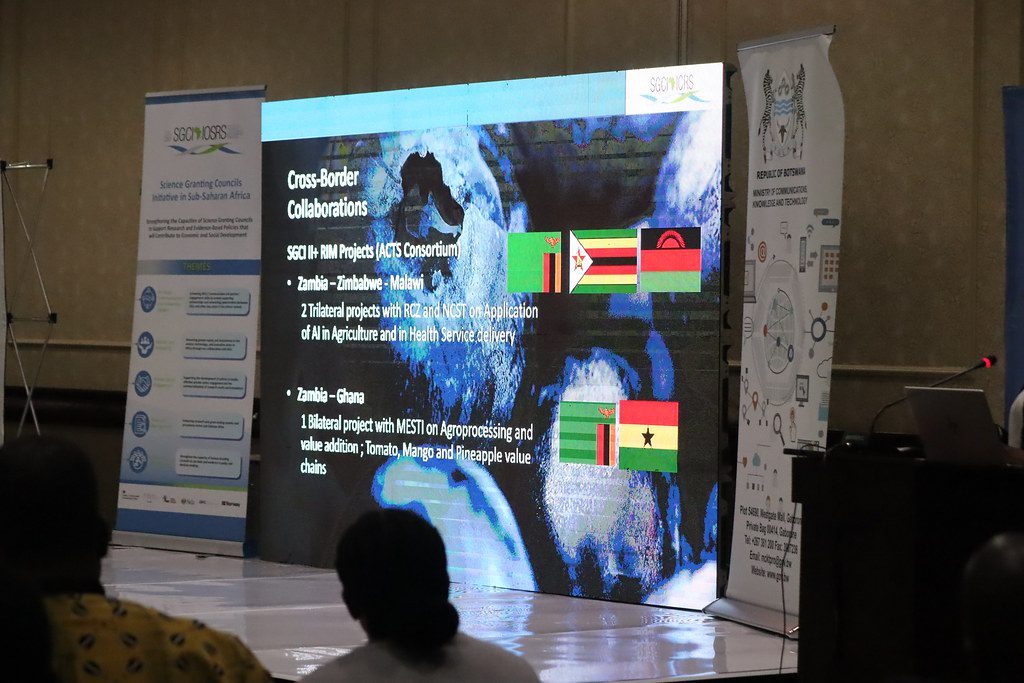SGCI News
For those who missed our recent newsletter, here is a roundup of stories we published. We covered three ground-breaking initiatives that are transforming agricultural challenges into economic opportunities across East…
For those who missed our recent newsletter, here is a roundup of stories we published.
We covered three ground-breaking initiatives that are transforming agricultural challenges into economic opportunities across East and Southern Africa.
Eco-friendly kilns help Malawi’s fish curers cut losses
A study assessing the economic impact of post-harvest fisheries losses found staggering wastage: 43 per cent at the beach, 54 per cent during processing, and 69 per cent during marketing.
While the economic losses may be relatively modest, the study warned of high potential for health risks and loss of nutritional value.
With funding from the Science Granting Councils Initiative through Malawi’s National Commission for Science and Technology, researchers launched a project in 2024 to reduce these losses and improve the livelihoods of processors.
The project also targets women and young people.
Banana fibres refined for textiles, hair extensions
Ugandan researchers are transforming discarded banana stems into textiles, hair extensions, and sanitary pads, positioning the East African nation to capitalise on growing global demand for sustainable fibres.
The Banatex-EA (Banana Textiles in East Africa) project at Busitema University, eastern Uganda, has created spinnable banana fibre that can be used in textile production, presenting an alternative to cotton and synthetic materials, the researchers say.
Project leader Edwin Kamalha, a lecturer in textile engineering at the university, says the initiative will make banana production less wasteful and provide an extra source of revenue for farmers.
New cassava plant boosts income for Kenyan farmers
Kenya’s Masinde Muliro University of Science and Technology (MMUST) established a processing plant in Busia County, as part of a pilot project funded by Kenya’s National Research Fund to develop resilient crop varieties.
Vitalis Ogemah, the project’s principal researcher and a professor of agriculture at MMUST, says the project aimed to address the rising costs of energy-rich foods and animal feed, primarily caused by an overdependence on maize, a crop increasingly vulnerable to climate change-induced droughts.
He said the initiative seeks to diversify food sources and enhance food and nutrition security by promoting cassava cultivation and developing nutrient-rich cassava-based products for human and animal consumption.
Please check out the stories and let us know what you think. We would love to hear from you!
Let’s continue the conversation on our social media
Follow us on LinkedIn
Published on 20 May 2025
Related News
How Zambia’s science council is funding research that matters
When Zambia’s National Science and Technology Council (NSTC) was established in 1997, its founding vision was to harness science, technology, and innovation to improve the lives of ordinary Zambians. More than two decades later, that vision is increasingly taking shape through a growing portfolio of…
Voices of SGCI: Council leaders on the direction and ambition of SGCI 3
At the African Union’s Science, Technology and Innovation Week in Addis Ababa, earlier this month, leaders of science granting councils reflected on what SGCI Phase 3 represents for Africa’s science and innovation systems. From ownership and alignment to stewardship and sustainability, here are their voices…
Building Africa’s science future: inside the SGCI alliance
As Phase 3 of the Science Granting Councils Initiative launches on the margins of the African Union Summit in Addis Ababa last week, the SGCI Alliance Chair explains why this moment marks a decisive turning point for African science. Cephas Adjei Mensah describes what is…
SGCI funded projects
Rwanda’s integrated approach to sustainable agriculture and nutrition
Project Titles & Institution Areas of Research Number of Projects being funded Project Duration Grant Amount In-Kind Distribution Council Collaboration with other councils





